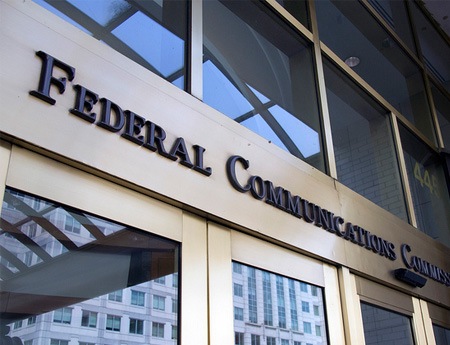FCC: IG Sought Delayed Release of Lifeline NAL

The smarter way to stay on top of broadcasting and cable industry. Sign up below
You are now subscribed
Your newsletter sign-up was successful
Turns out it was the Office of the Inspector General that asked the FCC not to issue its Lifeline fraud notice of apparent liability until April 1, the day after a deeply divided commission voted on proposed Lifeline reforms that did not include the cap on the program's spending Republican Commissioners had been pushing for.
That is according to FCC Press Secretary Kim Hart. “The timing of the enforcement action was in no way related to the timing of the vote on the program modernization. The Office of the Inspector General requested the investigation not be made public before April 1.”
A Republican-pushed compromise on reforms of the Universal Service Fund (USF) Lifeline low income subsidy that had included a cap had collapsed the day of the meeting. Then, the next day, the FCC released a proposed $51 million fine for an alleged Lifeline abuser. Total Call Mobile, who the FCC said had enrolled "tens of thousands of duplicate and ineligible consumers." FCC Commission Ajit Pai said in a partial dissent from tha NAL: "Commissioners were told that the Notice of Apparent Liability could not be released or publicly discussed until April 1, 2016, conveniently one day after the Commission was scheduled to expand the Lifeline program to broadband. That’s not right."
That led to a story in the Washington Free Beacon under the headline "FCC kept 'Obamaphone' fraud under wraps until after it expanded program."
Hart said the FCC had reached out to the Beacon to provide it with the update about the IG, not the chairman's office, requesting the timing of the release.
The IG does not comment, but it often coordinates with other agencies, like DOJ, which suggests other agencies could also be looking into USF abuses.
"The Enforcement Bureau explicitly and repeatedly said that nothing in the NAL could be publicly discussed or disclosed until April 1," said a Pai spokesperson. "When specifically asked if that meant that if the Commission adopted the item before April 1 it would not be publicly released until April 1, our office was told point blank that yes, the FCC would not release the NAL until April 1 even if adopted earlier.
The smarter way to stay on top of broadcasting and cable industry. Sign up below
"With respect to acting sooner, our office specifically asked why the FCC didn’t move forward with the NAL on the 32,000 duplicates that USAC [which administers the USF fund] had discovered. USAC discovered those duplicates in October 2014 and disclosed that finding to the company and FCC the next month. Under our precedent, that would have enabled the FCC to move forward with an NAL of up to $84 million at any time before October 2015. Because the company already knew about this finding, Total Call Mobile *knew* it was under investigation regarding duplicate fraud. Our office asked EB—repeatedly—what could justify not moving forward with this part of the investigation in an NAL before the statute of limitations expired and never received a satisfactory response."
"“An investigation has many components, including document production," said Hart. "In this case, the company continued to produce a significant number of documents to the bureau until late in December 2015. As a routine matter, the Commission doesn’t make enforcement items public until the Commissioners votes and they are released. The Enforcement bureau circulated the order to the Commissioner’s offices on Monday, February 22. The offices could have voted at any time, however, the item was not adopted until the April 7 statutory deadline.”
"“An investigation has many components, including document production," said Hart. "In this case, the company continued to produce a significant number of documents to the bureau until late in December 2015. As a routine matter, the Commission doesn’t make enforcement items public until the Commissioners votes and they are released. The Enforcement bureau circulated the order to the Commissioner’s offices on Monday, February 22. The offices could have voted at any time, however, the item was not adopted until the April 7 statutory deadline.”
Republicans in in Congress were also unhappy with the collapse of the compromise and fund cap, this week holding a hearing on a bill that legislate a cap, as well as a flash-cut from voice-only service--the FCC reform is focused on migrating the fund to broadband, but has a glide path to ending voice-only subsidies of three years, and a caveat for extending it longer if need be.
Contributing editor John Eggerton has been an editor and/or writer on media regulation, legislation and policy for over four decades, including covering the FCC, FTC, Congress, the major media trade associations, and the federal courts. In addition to Multichannel News and Broadcasting + Cable, his work has appeared in Radio World, TV Technology, TV Fax, This Week in Consumer Electronics, Variety and the Encyclopedia Britannica.

